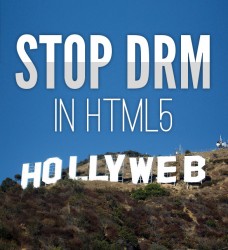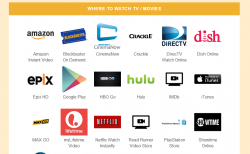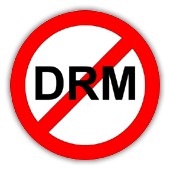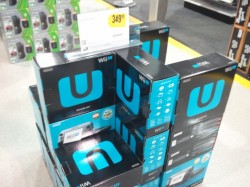I’m finding it a bit difficult to come up with an intro to this WNR. Probably because I only slept about 5 hours last night. And that I have nothing of real interest, and on topic, to share this week (although I have to say I’m quite enjoying the Netflix original Orange is the New Black). But most likely the sleep thing.
Onto the WNR.
 The anti-DMCA, anti-censorship, and pro gay rights movements combined this week to form the perfect storm. It all started when controversial heterosexual rights group (yep, you read it right) ‘Straight Pride UK’ used the DMCA takedown process to censor their own response to a Q&A.
The anti-DMCA, anti-censorship, and pro gay rights movements combined this week to form the perfect storm. It all started when controversial heterosexual rights group (yep, you read it right) ‘Straight Pride UK’ used the DMCA takedown process to censor their own response to a Q&A.
Not happy at how their own answers looked on student and freelance journalist Oliver Hotham’s WordPress blog, Straights Pride UK threatened Hotham with a DMCA takedown notice if he did not remove the content voluntarily; a threat that was eventually carried out.
The Streisand Effect did its thing and the removed article got more attention than it might have ever had, had Straights Pride UK simply let Hotham publish it without interference. Even Automattic, the owners of WordPress, eventually had to make a statement calling the DMCA takedown a clear case of abuse and censorship.
Not going into details about Straight Pride UK’s assertions, this latest incident shows again why the DMCA is deeply flawed, and how copyright laws now hamper creativity and speech, when the whole idea behind copyright is to promote these things (by giving copyright owners incentive to continue to create and speak). Copyright is one of many things that have been co-opted by moneyed interests to work directly against its original intended purpose.
To put it in another way, piracy isn’t always an anathema to the creative industry. While all the others are hitching a ride on the Internet-piracy-is-to-blame-for-everything bandwagon, it’s much easier to see piracy more as a nuisance than a curse if you happen to have *the* hit show of the moment. And if take this a couple of more steps in the same direction, piracy is not only not harmful, it’s actually quite good. Or more precisely, it is the reflection, the response, to something quite good.
At least that’s what the CEO of HBO’s parent company, Time Warner, thinks. Jeff Bewkes told investors during an earnings call that Game of Thrones’s piracy record is actually better than winning an Emmy thanks to piracy’s “tremendous word of mouth thing”. And word of mouth, or buzz, is what drives new subscribers, according to Bewkes.
Premium cable isn’t a stranger to piracy. Whether it’s the old fashioned illegal hook-up, or shared subscriptions, or the Internet, piracy is piracy. And in Bewkes’s experience, piracy eventually leads to paying subscribers.
It’s definitely an enlightened view from an industry that hasn’t always been very enlightened when it comes to the “nothing good has come out of it” Internet. It also makes sense. The reasons for people wanting to pirate something is also the same reasons that makes people want to pay for whatever it is. With desire taken care of, it’s just then a problem of finding out why people aren’t paying; whether it’s an issue of price; user friendliness; or availability.
It’s only when you have a poor product, or a business model based on poor value, that piracy then starts to play a bigger role in determining profitability.
As for Game of Thrones, it’s good to be the King (of television drama).
![]()
Has the anti Xbox One DRM backlash been unfair to Microsoft? Veteran game designer Peter Molyneux thinks it has, as he says gamers have misunderstood the long term vision behind Microsoft’s ill-fated and now reversed changes. Molyneux not only thinks that gamers too harshly judged Microsoft for its bold vision, but that they continue to harshly treat the company even after it folded and gave gamers everything they wanted.
Molyneux believes in Microsoft’s vision because he says that the future of gaming is indeed online, and being online almost all of the time. But he also adds that it is up to game companies like Microsoft to create the applications that take advantage of being online all the time, and to explain the benefits; something I think everyone can agree that Microsoft did a poor job of.
To me, everything Microsoft did seemed to be too reactive. They failed to anticipate the backlash and once it materialized, they continued playing a losing game of catch-up. For example, the whole used game trading scheme seemed like an afterthought, instead of being baked right into the design – either Microsoft didn’t explain it better, or it really was a reaction to the backlash. And the reversal was the ultimate reaction, some might say over-reaction.
Personally, I liked the idea of not having to use game discs. I thought that by allowing the re-sale and trading of digital purchases was a revolutionary idea (one that could have changed copyright law, for the good, forever). And I too agree that the future of game distribution lies online. But I also think that discs still have a place, and that gamers should have been given a choice of whether they wanted to do it the old way or the new. And at the very least, Microsoft should have lined up all of its re-sale/trading/sharing ducks before they unleashed their creation onto the world (and then failed to answer some very simple and expected questions).
It’s not what you say. It’s how you say it. Sometimes.
As for the latest NPD results, showing US video games sales in July, the only thing I can say about the Xbox 360 being the most popular (home based) console is that its sales were poor, but others were poorer. With only 107,000 Xbox 360 units sold in the whole month, this was 47% down compared to just a year ago. And the Wii, the Wii U and the PS3 all did worse as well.
Wii U sales are pegged at closer to (and probably under) 30,000, according to unofficial sources, and it is steadily dropping as well. The PS3 will have come closest to the 360 numbers, but not close enough.
But it is close enough to the end of this WNR. So close, that it could end at any moment. Like, right in the middle of this sente















